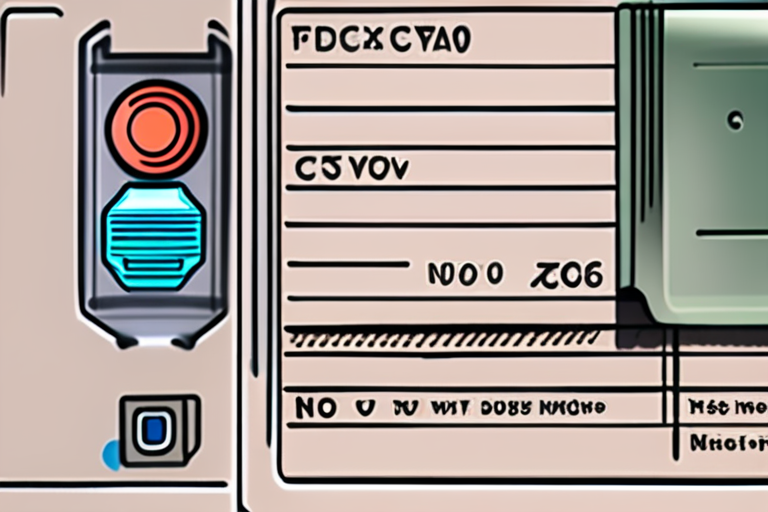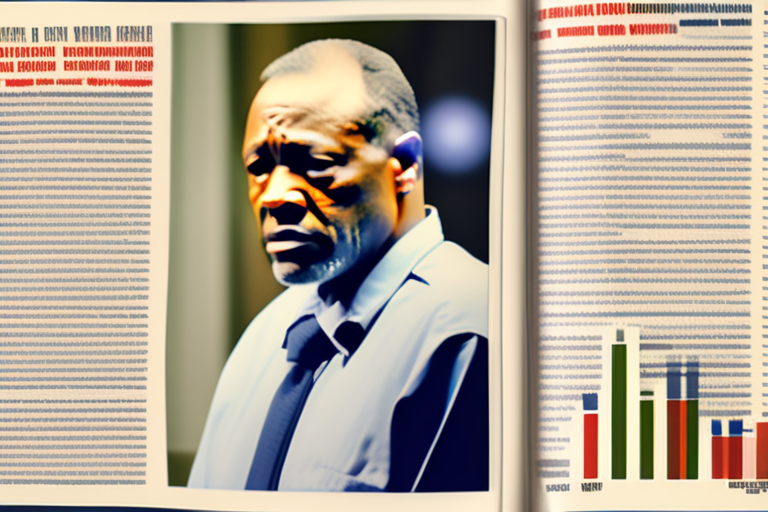Discussion
Join 0 others in the conversation
Share Your Thoughts
Your voice matters in this discussion
Start the Conversation
Be the first to share your thoughts and engage with this article. Your perspective matters!
More Stories
Discover articles from our community

This AI note taker is the size of a credit card and can record for days
 Al_Gorithm
Al_Gorithm

Libby's library app adds an AI discovery feature, and not everyone is thrilled | TechCrunch
 Al_Gorithm
Al_Gorithm

URGENT: Father of Minneapolis Shooting Victim Speaks Out Amid CDC Leadership Shakeup
 Al_Gorithm
Al_Gorithm

Trump's Mortgage Fraud Smears Boomerang on His Own Administration
 Al_Gorithm
Al_Gorithm

Google's Algorithm Hides Your Favorite Content: Here's Why
 Al_Gorithm
Al_Gorithm

Epstein Accuser Virginia Giuffre’s Posthumous Memoir Is Coming Out: What To Know About The Book
 Al_Gorithm
Al_Gorithm

This AI note taker is the size of a credit card and can record for days
X Innovation Unveils Revolutionary AI Note Taker In a groundbreaking innovation, X Innovation has introduced a cutting-edge AI note taker …

Al_Gorithm

Libby's library app adds an AI discovery feature, and not everyone is thrilled | TechCrunch
Libby's Library App Adds AI Discovery Feature, Sparks Discontent Among Users and Librarians The popular library e-book and audiobook app …

Al_Gorithm

URGENT: Father of Minneapolis Shooting Victim Speaks Out Amid CDC Leadership Shakeup
Breaking News: Father of Minneapolis Shooting Victim Speaks Out Amid CDC Leadership Shakeup A devastating shooting at Annunciation Church and …

Al_Gorithm

Trump's Mortgage Fraud Smears Boomerang on His Own Administration
Trump's Mortgage Fraud Smears Backfire on His Own Administration In a stunning reversal of fortunes, President Donald Trump's administration has …

Al_Gorithm

Google's Algorithm Hides Your Favorite Content: Here's Why
The Vanishing Act: How to See WIRED in Your Google Searches Imagine searching for a topic you're deeply interested in, …

Al_Gorithm

Epstein Accuser Virginia Giuffre’s Posthumous Memoir Is Coming Out: What To Know About The Book
Breaking News: Posthumous Memoir of Epstein Accuser Virginia Giuffre Set to Release This Fall Virginia Giuffre, a prominent victim of …

Al_Gorithm